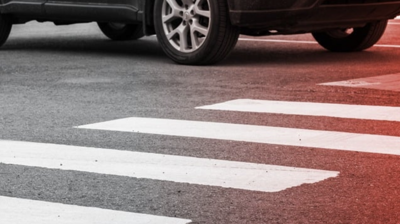If you’ve had the misfortune of being in an accident with your leased vehicle, it’s crucial to understand the repercussions and your next steps.
Wondering what happens if you crash a leased car? We’ll guide you through steps you should take and things you should know — from immediate actions to insurance claims, financial responsibilities and leasing company procedures — to ensure you’re well-informed and prepared to handle the situation with confidence.
Got a situation you need immediate help with? Contact the St. Louis personal injury lawyers at Niemeyer, Grebel and Kruse today to discuss your case. Call (314) 350-1900 to schedule a free initial consultation.
What To Do Immediately After a Crash In a Leased Vehicle
A car accident is a stressful event. It can be difficult at the moment to know what to do next. No matter where your crash took place or who was involved, it’s a great idea to follow this quick list:
- Make sure everyone is safe
- Reach out to emergency services, if needed
- Document as much as possible
- Exchange insurance details with the other party, if possible
Ensure Safety and Contact Emergency Services
The immediate aftermath of an accident can be chaotic. Amid the confusion, your priority should be to assess injuries among all parties involved. If anyone is hurt, don’t hesitate to call for medical assistance. It could save lives.
After confirming everyone’s safety, next you should secure the accident scene. This can involve moving the cars out of the roadway. This prevents additional accidents and preserves evidence for the police and insurance companies.
Document the Accident and Exchange Insurance Details
Even though you might still be in shock, it’s very important to meticulously document the accident. Use your phone to take photos of the accident scene, the vehicles involved and any visible injuries. If there are witnesses, gather their contact information. Contact your local police department, so they can produce a police report that documents the crash. These details could prove invaluable when you file your insurance claim.
Next, exchange contact and insurance details with the other driver. This will facilitate communication and make the insurance claims process smoother.
Navigating Insurance Procedures After a Leased Car Accident
Now that we’ve made it through the crash scene, it’s time to navigate the insurance procedures.
Reporting the Incident to Your Car Insurance Company
Initiate the process by reporting the accident to your auto insurance company. This will help initiate the claims process and ensure proper documentation of the incident. This is a critical step, and it’s usually required in your policy.
Even if the other driver is at fault, you’ll be in regular contact with your own insurance company to arrange for a rental car, as well as compensation for repairs and medical bills. Your insurance will also keep you apprised of negotiations with the other driver’s insurance company as your claim is processed.
Communicating with Your Leasing Company
While dealing with your insurance company following an accident is paramount, keep in mind to also inform your leasing company. They have a vested interest in the car, and most lease contracts mandate that you report any accidents to them immediately.
Reviewing Your Lease Agreement Obligations
Signing your lease agreement came with certain agreed obligations. These can often include:
- Having comprehensive and collision insurance coverage on the leased vehicle
- Notifying the leasing company about any accidents
- Detailing the extent of the damage
- Informing the leasing company about your plans to contact insurance and ensuring the leasing company money is properly managed in case of any claims
It’s also worth noting that while normal wear and tear on the vehicle is tolerated, significant damage must be repaired or it may lead to additional fees at the end of the lease.
Coordinating Repairs and Leasing Company Expectations
If your leased car is repairable after an accident, it’s your responsibility to get it fixed according to your lease agreement.
This often means using repair shops recommended by the leasing company to prevent additional charges. Beware that leasing companies may impose charges for repairs they deem substandard, which could include additional fees if they are not satisfied with the initial repairs after an accident.
Financial Considerations and Responsibilities
Beyond insurance payouts, you might be responsible for remaining lease payments and fees, and if you plan to enter into a new lease, you may face additional rolled-over charges from the damaged vehicle.
Assessing Potential Costs Beyond Insurance Payouts
Despite having comprehensive collision coverage, certain costs might not be covered when the insurance company pays.
For example, if the accident was your fault, you’ll be responsible for paying the insurance deductible and any repair costs that exceed your policy’s coverage limits.
If your leased car is totaled, the insurance payout might not cover the remaining balance of your lease, leaving you financially responsible for the difference.
Handling Remaining Payments and Fees
Although insurance can absorb a major part of the cost associated with a car accident, it sometimes doesn’t cover everything.
It’s important to note that you may still have to cover any remaining lease payments and associated fees. Without gap insurance, you could face early termination fees on top of the remaining balance if your leased vehicle is totaled.
When To Talk to a Lawyer
Crashing a leased car adds an extra layer of complexity to the usual post-accident procedures. If you find yourself in this situation, a lawyer can help you navigate the legal and financial complications.
This is particularly true in the case of:
- Dispute Over Fault – If there’s a disagreement about who is responsible for the accident, a lawyer can help investigate your case and ensure that the fault is assigned fairly, according to the evidence.
- Severe Damages and Injuries – Significant injuries or major damages to the vehicle can lead to complicated insurance claims and potential lawsuits. A lawyer can help manage these claims, dealing with insurance adjusters and opposing attorneys to safeguard your interests.
- Insurance Issues – If the insurance company disputes your claim, denies coverage or offers a settlement that doesn’t adequately cover your losses, a lawyer can intervene to negotiate more favorable terms.
- Lease Contract Complexities – A lawyer can review the terms of your lease agreement to clarify your obligations and rights under the contract, particularly if there are penalties for vehicle damage.
- Litigation – If the accident leads to litigation, it’s obviously essential to have a lawyer.
In any of these situations, a lawyer can provide the guidance and advocacy needed to protect your rights and navigate the complexities of your lease agreement and the law. If you’re unsure about whether you need legal advice, it’s wise to err on the side of caution and consult a professional who can assess your specific circumstances.
Preparing for Lease End After an Accident
An accident can add complications as your lease term approaches its end. Understanding your options and making an informed decision will help you navigate this challenging scenario.
Evaluating End-of-Lease Options
When your lease ends, you have a few options to consider. You can choose to buy out the car or enter a new lease agreement. However, buying out a leased vehicle post-accident could result in a higher monthly payment, and the absence of a warranty for future repairs could pose additional challenges.
Maintaining Your Driving Record and Future Leasing Opportunities
Accidents can significantly impact your driving record and future leasing prospects. However, with careful planning and strategic decisions, you can mitigate these effects.
Impact on Driving Record and Insurance Rates
Car accidents can tarnish your driving record, subsequently impacting your insurance premiums. Serious accidents can even stay on your record permanently, leading to long-term insurance rate hikes. However, there are strategies to mitigate these increases, such as:
- Shopping around for quotes
- Reducing coverage
- Increasing deductibles
- Bundling policies
Tips for Future Leasing Decisions
Planning for future leasing decisions post-accident involves factoring in potential insurance coverage costs and considering accident forgiveness programs. These programs can prevent rate hikes following the first at-fault accident, providing protection for your future leasing opportunities.
Need Legal Help? Call Today
Navigating the aftermath of an accident involving a leased car can be complex, with various factors to consider, from immediate actions post-collision to potential legal aspects.
As we’ve discussed in this guide, understanding your lease agreement, insurance coverages and financial responsibilities is key to handling it successfully.
If you or someone you know has been involved in a car accident with a leased car, remember that you’re not alone in this. If you need further assistance, don’t hesitate to contact Niemeyer, Grebel and Kruse at (314) 350-1900.






